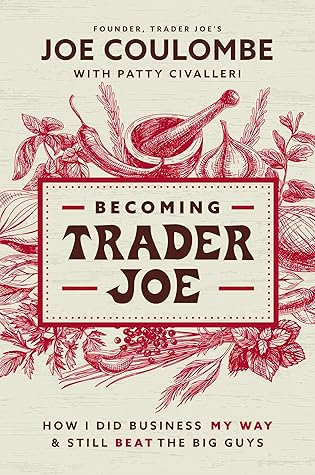More on this book
Community
Kindle Notes & Highlights
Read between
February 7 - February 8, 2025
if you adopt a reasonable strategy, as opposed to waiting for an optimum strategy, and stick with it, you’ll probably succeed. Tenacity is as important as brilliance.
Trying to find an optimum solution in business is a waste of time: the factors in the equation are changing all the time.
This is the most important single business decision I ever made: to pay people well.
At Stanford I’d been taught that employees never organize because of money: they organize because of un-listened-to grievances.
“You can do everything with bayonets, sire, except sit on them!” (The Revolt of the Masses, chapter 14, “Who Rules in the World?”)
I took a cue from General Patton, who thought that the greatest danger was not that the enemy would learn his plans, but that his own troops would not.
Yes, we were briefly “number one” in great wines, thanks to the Christie’s auctions of 1976–77, but far more importantly we became the best place in the world to buy a good bottle of wine for less than $2.00. That’s a position we held for the rest of my days at Trader Joe’s. It absolutely addressed our prime market, the overeducated and underpaid people of California.
I believe that the sine qua non for successful retailing is demographic coherence: all your locations should have the same demographics whether you are selling clothing or wine. We looked for our demographics: there are lots of overeducated and underpaid people in Southern California. That’s why most Trader Joe’s were located near a major institution of learning:
My ideal, often stated to everybody, was that Captains should have the chance to make more than executives in the office. In a traditional chain store, managers aspire to become bureaucrats with cushy, high-paying jobs in the office. I wanted to kill such aspirations at the start.
I don’t like censorship, but there was no way for me to determine the difference between Playboy and Helen Gurley Brown’s Cosmopolitan.
Senior discounts. Giving discounts to people over sixty is, to borrow a phrase from Charlie Munger, “a type of dementia I can’t even classify.” Here you have the fastest-growing, most affluent part of the population, and you give them a discount? If anyone should get a discount, it’s the shrinking workforce, which subsidizes the old folks through their income and social security taxes.
Advertising moves the people to the product; merchandising is what moves the product to the people.
Given the need for long leases, landlords and tenants are trying to outguess each other about the objective future (for example, the business cycle, as opposed to the subjective futures of the parties, the commercial success of the tenant, the demand for the space offered by the landlord).


